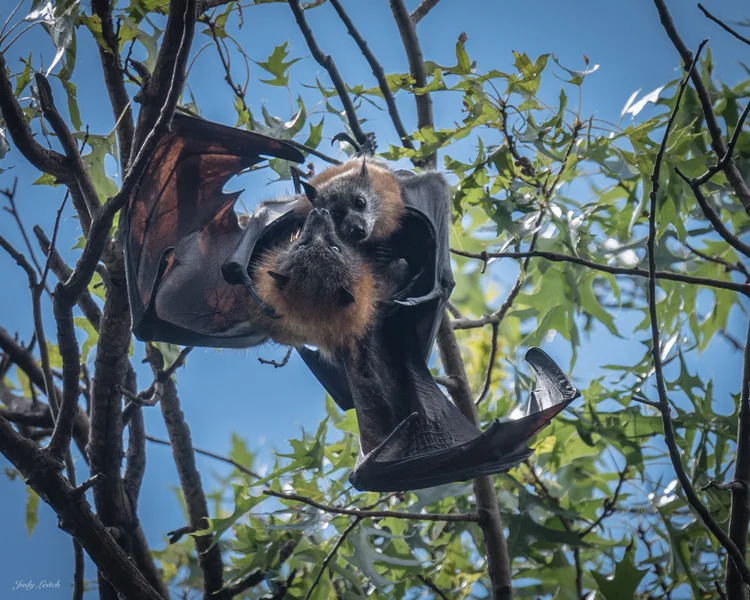Spring on the Sunshine Coast means movement time for local flying-fox roosts

The change of seasons usually marks the beginning of birthing season for grey-headed and black flying-foxes, as the species vacate their winter sites and return to traditional maternity roosts to give birth and raise their young.
Did you know?
- flying-foxes give birth to their young whilst hanging upside-down and catch them in their wings before licking them to stimulate their first breath
- flying-foxes usually give birth to only one ‘pup’ each year
- flying-fox pups drink milk from mum’s teat, which is situated in her armpit
- If stressed or disturbed in late stage pregnancy or early after birth, mothers may abort foetuses or abandon their young
What does this mean at the roosts?
Due to the high risk of abandonment, management actions are limited this time of year, to ensure there are few orphaned pups.
Coastal maternity roosts will likely start to become inhabited again very soon, and females will start giving birth.
Maternity roosts will start to get noisier at night as newborns call for their mother—it may all sound like one big noisy mess to us, but female flying-foxes can actually identify the call of their own young through all the other calls in the roost.
So what's council's plan?
Council understands how difficult it can be living near flying fox roosts in urban areas, and we have a long term plan to try and entice flying foxes to a more suitable home. We conduct research to better understand how they choose their roost sites and are rehabilitating more appropriate reserves with trees they like to live in and food they like to eat.
Council’s on-ground works are minimised during birthing season as it is a critical life stage for the flying-foxes. We are only able to perform ‘low impact’ activities (like weed management) as increased disturbance could lead to abortion or abandonment of young.
Learn more at www.sunshinecoast.qld.gov.au/flyingfoxes
If you see an injured bat avoiding contact and call trained wildlife rescue professionals on 1300 ANIMAL (264 625).
Last edited on:
First published on: